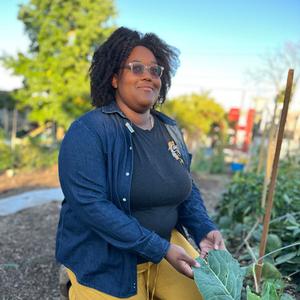Women Who Have Transformed Higher Education
SaveAs we celebrate Women's History Month, let's remember and honor the following individuals and their contributions to women's advancements in education and beyond.

In celebration of Women's History Month, it is important to recognize and honor the incredible women who have paved the way for gender equity in higher education. These trailblazing individuals have not only transformed the college experience for women, but also broke barriers for Black, Indigenous, Latinx, and LGBTQIA+ communities.
One of these women is Mary McLeod Bethune, an educator and civil rights activist who founded Bethune-Cookman University in 1904. As one of the few Black women to earn a college degree at the time, Bethune understood the importance of education in empowering women and fighting for social justice. Through her tireless efforts, she opened doors for countless Black women to receive a college education and become leaders in their communities.
In 1978, Dr. Sally Ride made history by becoming the first Native American woman to fly into space as a crew member on the space shuttle Challenger. But before her groundbreaking journey, she was a physics major at Stanford University. This groundbreaking achievement opened new opportunities for women in the field of space exploration. Dr. Ride went on to have an incredible career at NASA, serving as a mission specialist on two more space shuttle flights and working on various projects related to space exploration and physics. Aside from her remarkable contributions to the field of science and space, Dr. Ride was also a strong advocate for STEM education, particularly for young girls. She co-founded the educational company Sally Ride Science, which aimed to inspire and encourage young girls to pursue careers in science, technology, engineering, and math. Dr. Ride's achievements not only shattered stereotypes, but also encouraged more Indigenous women to pursue careers in STEM fields.
Dr. Rebecca Lee Crumpler, another influential figure in the history of women's education, is the first Black woman to earn a medical degree in the United States. Dr. Rebecca Lee Crumpler was a trailblazer in the field of medicine, breaking barriers and paving the way for future generations of Black women. Born in Delaware in 1831, Crumpler was raised by her aunt, who was a nurse and provided her with early exposure to the medical field. Facing numerous challenges and discrimination, Crumpler's passion for medicine did not waver. After moving to Boston in the 1850s, she worked as a nurse and attended the New England Female Medical College. As a physician, Dr. Crumpler faced many obstacles. She experienced denial from opportunities to further medical training and faced discrimination from her white male colleagues. She persisted and went on to open her own medical practice in Boston, where she primarily served low-income women and children. Her dedication and compassion for her patients were evident, and she often treated them for free if they could not afford it.
Dr. Crumpler was also an advocate for public health and education. She believed in educating her patients on preventative measures and proper hygiene to improve their overall health. She also published a book, "A Book of Medical Discourses," in 1883, which was one of the first medical publications written by a Black woman.
Dr. Antonia Pantoja was a pioneering Puerto Rican educator, social worker, and civil rights activist who dedicated her life to serving marginalized communities. Born in San Juan, Puerto Rico in 1922, Pantoja grew up in a working-class family. She excelled academically and went on to earn a bachelor's degree in education from the University of Puerto Rico and a master's degree in social work from Columbia University. Dr. Pantoja's passion for education and social justice led her to become a leader in the Puerto Rican community in New York City. In the 1950s, she co-founded the Puerto Rican Forum, an organization dedicated to addressing the needs of Puerto Ricans living in the United States. She also worked as a social worker in Harlem, advocating for bilingual education and better access to healthcare for Puerto Ricans.
By the 1960s, Pantoja turned her attention to the growing civil rights movement and became a fierce advocate for Latino rights. She was a co-founder of the National Puerto Rican Forum and played a key role in the founding of ASPIRA, an organization focused on empowering Latino youth through education and leadership development. She also co-founded Boricua College, the first bilingual college in the United States, providing higher education opportunities for Latinx students.
Sylvia Rivera, a transgender activist and drag queen of Puerto Rican and Venezuelan descent, grew up in New York City. At just eleven years old, Sylvia lived on the streets, surviving through sex work. She faced constant harassment from both the police and members of her own community. Sylvia was a key figure in the 1969 Stonewall uprising - a series of riots that marked a turning point in the LGBTQ+ rights movement. Alongside Marsha P. Johnson, another transgender activist, Sylvia helped lead the resistance against police brutality and discrimination faced by queer individuals. Throughout her life, she continued to be a vocal and passionate advocate for transgender and homeless youth, founding organizations such as STAR (Street Transvestite Action Revolutionaries) and working with the Gay Liberation Front. She fought for the inclusion of transgender rights in the larger LGBTQ+ movement and spoke out against the commercialization of Pride events. She also fought for the inclusion of LGBTQIA individuals in higher education, paving the way for more inclusive campuses today.
Anita Cameron advocates and organizes for disability rights as a strong voice in the fight for disability justice in higher education. Cameron graduated from Syracuse University, where she experienced firsthand the lack of accommodations and support for students with disabilities. She has since become a fierce advocate for disability rights in higher education, working with organizations such as the National Council on Independent Living and the American Association of People with Disabilities to push for policy changes and better accessibility on college campuses.
Influential advocate is Dr. Simi Linton, another leading scholar and activist in the disability rights movement, became disabled herself in a car accident and has dedicated her career to promoting disability studies and disability justice in higher education. She has worked with universities across the country to develop disability studies programs and vocally advocates for the inclusion of disability studies in the curriculum of all higher education institutions.
Maryam Jones, born in the small island nation of Haiti to a family of educators, exuded a passion for learning and a deep understanding of the importance of education. Her parents, both university professors, encouraged her to pursue her studies and make a difference in the world. After completing her undergraduate degree in sociology in Haiti, Maryam was determined to further her education and make a significant impact in the field of education. She applied to several universities in the United States and was accepted into a prestigious Ph.D. program in Education at Harvard University.
At Harvard, Maryam was exposed to the stark inequalities and lack of representation in higher education for people of color, particularly women. This sparked in her to challenge the status quo and work towards creating a more equitable and inclusive educational system. Upon completing her Ph.D., Maryam returned to Haiti and began working as a professor at her alma mater. She rose through the ranks and became the first female Dean of the Faculty of Education. During her tenure, she implemented policies that aimed to increase access to higher education for students from marginalized communities and promoted diversity and inclusion within the faculty.
Maryam's impact was not limited to her home country. She travelled to various countries in the Caribbean and Africa, advocating for the importance of education and sharing her knowledge and expertise with educators and policymakers. Maryam founded a non-profit organization that provided scholarships and mentorship programs for young women from underprivileged backgrounds. Through her organization, she helped countless young women achieve their dreams of pursuing higher education and becoming leaders in their communities.
One notable advocate is Dr. Cathy J. Cohen, a professor of political science at the University of Chicago. She is the founder of the Black Youth Project, a research and advocacy organization that focuses on the experiences and issues faced by Black youth in the United States. Dr. Cohen has also written extensively on the topic of Black Asian solidarity, arguing that the two communities share a common history of oppression and should work together to fight against racism and discrimination.
Dr. Valerie Francisco-Menchavez, a professor of sociology at San Francisco State University, is another prominent advocate for Asian and Black solidarity. She is the co-founder of the Asian American Feminist Collective, an organization that aims to address the issues faced by Asian women through a feminist lens. In her research, Dr. Francisco-Menchavez examines the intersections of race, gender, and class in the experiences of Filipino communities in the United States and advocates for solidarity between Asian and Black communities.
These women, along with many others, are at the forefront of promoting greater understanding and collaboration across marginalized communities in higher education. They recognize that marginalized people face different aspects of systemic racism and discrimination and work to build alliances and solidarity to fight against these injustices. These women transformed higher education by educating and raise awareness among their students and colleagues about issues facing their communities. They are also advocated for more diverse and inclusive curriculums that reflect the experiences and contributions of marginalized peoples.
These are just a few of the countless women who have left a lasting impact on college education. Their determination and passion for systematic change have opened doors for women, while also sparking important conversations. As we celebrate Women's History Month, let's remember and honor these remarkable individuals and their contributions to women's advancements in education and beyond.

Justina Thompson
Justina "Farmer J" Thompson is the Farm Education and Volunteer Manager at Urban Creators, Philadelphia, PA. Justina intentionally attended school in Philadelphia so she could “connect her passion and experience to the ongoing environmental justice work in the area.” As a speaker, educational curriculum designer, program leader, and community organizer, Justina possesses extensive knowledge on urban farming inspired to work in the field of environmental justice from a young age.Articles & Advice
Featured Articles from The SAGE Scholars Benefit

What Are You Going to Do with That Degree?

Tutoring Services
